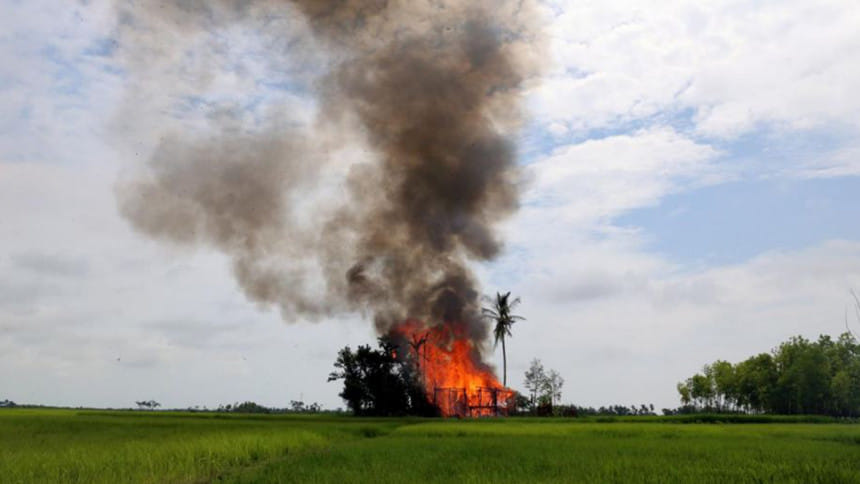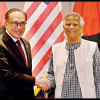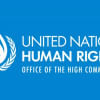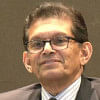Rohingya Crisis: The UN failure makes reform call louder

Monday was another day of reckoning for the United Nations.
As the UN chief and the UN high commissioner on human rights decried the mass violation of human rights, genocide and unjust wars raging all over the world from Syria to Myanmar to Congo, one thing came out even clearer -- the undemocratic character of the UN system has left the world an unsafe place for the weak.
As one million Rohingyas flee into Bangladesh in the face of mass rape and murder, as bombs fall on Syria after a ceasefire, as Congo slides back into the world's biggest genocide with an estimated five million dead, and as the UN Security Council miserably fails to pass any resolution because of the vested interest of one or more of the five permanent members also referred to as P5, the call is growing louder and clearer for reforms of the UN system.
And so a helpless UN Secretary General Antonio Guterres on Monday said: “I remind all parties of their absolute obligation and international humanitarian and human rights law to protect civilians and civilian infrastructure at all times.”
But how exactly do the international community, to be specific the P5, has so far reacted to such times of need? Most of the times, they vetoed any move to pass resolutions that they thought would harm their interest at the cost of human rights and human lives.
In the Cold War era and in later years, the USSR/ Russia had cast 132 vetoes mainly to block entry of any country into the UN that it thought would undermine its position. The US just lagged behind with 83 vetoes, mostly to block moves against Israeli atrocities on the Palestinians.
Another P5 member the UK used veto power 32 times beginning with the Suez Canal crisis and carrying it on when it went to war with Argentina over the Falkland Island in 1982.
France cast 18 vetoes. China used the power 11 times -- the first one was to block Mongolia's admission to the UN.
These powerful countries hold this veto power so close to their chest to derail any move that goes against their interest that the US and the UK would probably not have accepted the creation of the UN without this privilege.
The 1945 San Francisco conference is a case in point when a number of small and medium states opposed the provision of veto power as it “violated the notion of sovereign equality”. They were roughly snubbed by the P5 who made it clear that their participation in the UN was contingent to veto power.
And so from then on, the veto left the UN system ineffective when it concerned foreign policy and other interest of the P5 no matter if this meant permitting mass killings and genocide.
Another mentionable case is Myanmar. In 2007 when China and Russia cast a double veto on a draft resolution calling on Myanmar to cease military attacks on Rohingyas and other ethnic minority people. The duo again vetoed another Security Council move on Myanmar in 2009. And finally in March 2017, China and Russia together once again blocked a UNSC press statement to condemn the genocide on the Rohingyas. In September, they once again blocked a discussion in the UNSC on the Rohingyas' plight.
Under such circumstances, UN High Commissioner for Human Rights Zeid Raad Al Hussein has lamented, “When journalists are jailed in huge numbers in Turkey, and the Rohingya are dehumanised, deprived and slaughtered in their homes -- with all these examples bedevilling us, why are we doing so little to stop them, even though we should know how dangerous all of this is?”
In the face of such fecklessness by the UN ranging from the genocide of Rwanda to Bosnia to Congo to Sudan to Ukraine to other corners of the world, a major discourse has surfaced about reforming the UN to stop the veto power of the P5.
Canada launched the International Commission on Intervention and States Sovereignty in 2000 giving birth to the concept of “responsibility to protect” that argues P5 members should agree not to use veto to obstruct military intervention to save human lives. The concept was endorsed by UN members at the World Summit in 2005.
In support of the move, five small countries known as S5 -- Singapore, Costa Rica, Jordan, Switzerland and Liechtenstein -- proposed reforms to refrain the P5 from using veto to block Security Council actions aimed at preventing and ending genocides or crimes against humanity. Its proposals were tabled at the General Assembly in 2012 but were literally killed.
Right now two proposals, one by France and Mexico and supported by 99 states and the other by Liechtenstein backed by 27 small countries has been adopted by 112 states.
Then French president Francois Hollande in his UN General Assembly address in 2015 categorically pledged “France would never use its power of veto where there have been mass atrocities”. The UK has endorsed this view.
The Accountability, Coherence and Transparency (ACT) group formed by 24 small and medium states have laid down a code of conduct for the Security Council regarding genocides and atrocities.
Meantime, a 2008 move by the Holocaust Museum, American Academy of Diplomacy and the US Institute of Peace have recommended that the P-5 should agree that unless three permanent members were to agree to veto a given resolution, all five would abstain or support it.
But the US, China and Russia refrain from participating in such reform moves, making any such reforms still a far cry nevertheless a growing demand. The system is unjust and skewed as even if the whole world agrees to an action that would be skirted if any of the P5 members feel otherwise.
And so very justifiably former UN chief Ban Ki-moon in his last General Assembly debate in 2016 bemoaned: “Is it fair for any one country to wield such disproportionate power and hold the world hostage on so many important issues?”
The question remains valid today.

 For all latest news, follow The Daily Star's Google News channel.
For all latest news, follow The Daily Star's Google News channel. 








Comments